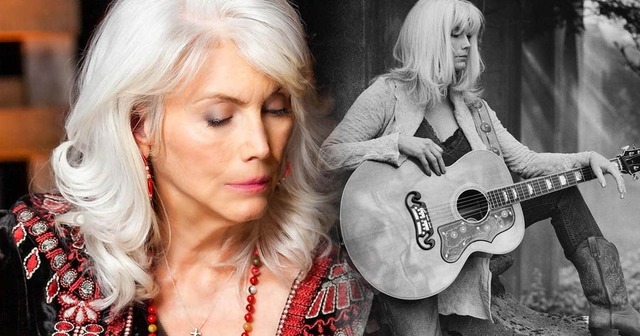Emmylou Harris is not just a name in the history of American music; she is a living legend whose voice transcends genres, boundaries, and generations. With a career that spans over five decades, Harris has earned her place among the greatest artists of our time. She has seamlessly blended elements of country, folk, rock, and Americana, creating a distinctive sound that continues to influence musicians and music lovers around the world.
What sets Emmylou apart is not just her ethereal voice, but her commitment to authenticity and her ability to evolve while staying true to her artistic roots. Her journey from a folk singer in New York City to an icon in the world of country and Americana is a testament to her resilience, creativity, and passion for storytelling through music. In this article, we will explore the pivotal moments in Emmylou Harris’s career and how she reshaped the American music landscape.
Early Life and Musical Roots: Growing Up in Alabama and North Carolina
Born on April 2, 1947, in Birmingham, Alabama, Emmylou Harris was raised in a family that valued perseverance and adaptability. Her father, Walter Harris, was a Marine Corps officer and a prisoner of war during the Korean War, while her mother, Eugenia, held the family together through many hardships. Growing up in North Carolina and Virginia, Emmylou was exposed to a variety of cultural influences that would later inform her eclectic musical style.
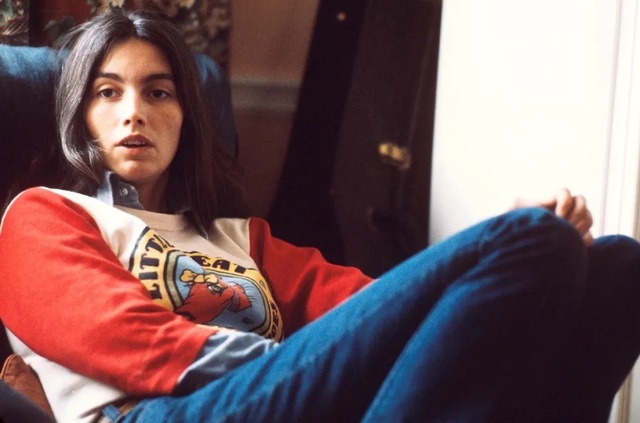
Her passion for music blossomed early on, fueled by the folk tunes of Bob Dylan and Joan Baez. She taught herself to play the guitar and began singing in local clubs. It was clear from a young age that music was her true calling, and though she initially pursued drama at the University of North Carolina at Greensboro, her love for music eventually led her to leave college and head to New York City in the 1960s. It was during the folk revival era in the city that Emmylou honed her craft, immersing herself in the vibrant music scene.

Curious about Emmylou Harris’s timeless influence on music? Watch this captivating performance of “Tulsa Queen” and experience the magic of her voice in action.
The Influential Partnership with Gram Parsons
One of the most pivotal moments in Emmylou Harris’s career came when she crossed paths with Gram Parsons in the early 1970s. Parsons, a pioneer of country-rock and one of the genre’s most innovative figures, immediately recognized Harris’s talent. He invited her to collaborate on his albums GP (1973) and Grievous Angel (1974), marking the beginning of a musical partnership that would produce some of the most iconic tracks in American music.
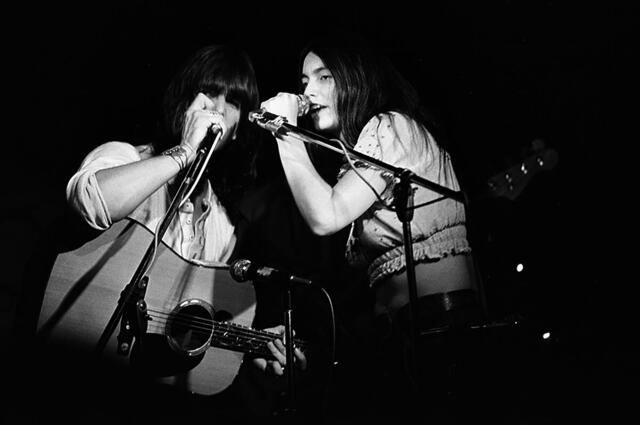
Together, they created timeless songs like “Love Hurts” and “Return of the Grievous Angel,” blending traditional country with rock and folk influences in a way that was revolutionary for the time. Harris’s angelic harmonies complemented Parsons’s adventurous sound, creating a unique musical chemistry that resonated deeply with audiences.
Tragically, Parsons’s untimely death in 1973 left Harris devastated, but it also fueled her determination to honor his legacy. She continued to explore the boundaries of country music, blending traditional sounds with contemporary influences to create a style that was uniquely her own.
Solo Career Breakthrough: Pieces of the Sky and Beyond
In 1975, Emmylou Harris launched her solo career with the release of Pieces of the Sky, an album that solidified her as one of the most exciting new voices in country music. The album’s success was driven by the hit single “If I Could Only Win Your Love,” which reached the Top 5 on the Billboard country charts.

The following year, Harris released Elite Hotel, an album that not only earned her a Grammy Award for Best Country Vocal Performance, Female, but also helped establish her as a leading figure in country music. Tracks like “Together Again” and “Sweet Dreams” showcased her ability to interpret a wide range of material with emotional depth and authenticity, further cementing her reputation as one of the genre’s greatest voices.
Innovative Projects and Collaborations: Pushing Boundaries in the 1970s and 1980s
Throughout the late 1970s and early 1980s, Emmylou Harris was at the forefront of country music’s evolution. She formed The Hot Band, a group of virtuoso musicians who brought a dynamic energy to her performances. Albums like Luxury Liner (1977) and Quarter Moon in a Ten Cent Town (1978) highlighted Harris’s willingness to experiment and push genre boundaries, blending elements of rock, bluegrass, and folk into her music.
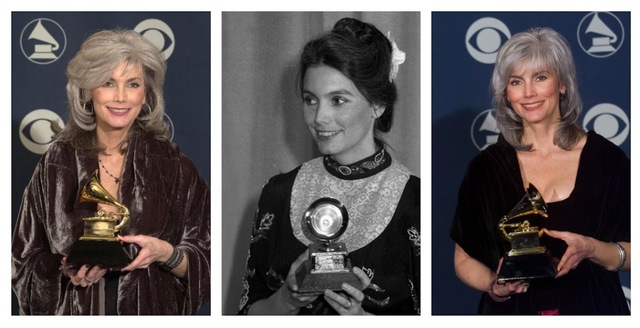
One of her most daring projects came in 1980 with the release of Roses in the Snow, a bluegrass album that defied industry expectations. The album was a commercial and critical success, further cementing Harris’s reputation as an artist who was unafraid to take risks and experiment with new sounds. The album earned her another Grammy, solidifying her position as one of the genre’s trailblazers.
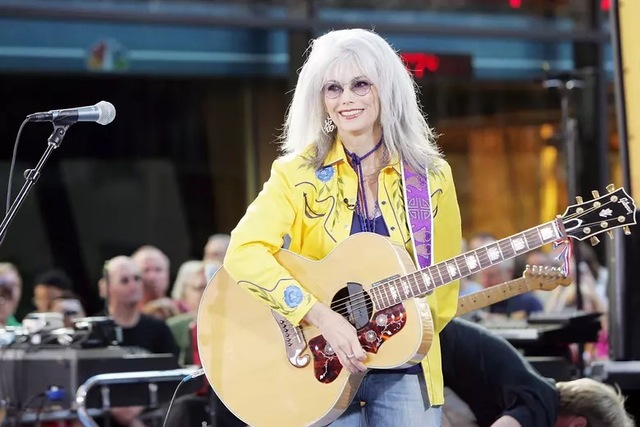
Experience the iconic harmonies of Dolly Parton, Linda Ronstadt, and Emmylou Harris in this heartwarming performance of “The Sweetest Gift.” A true masterpiece from three legendary voices.
Reinvention and Continued Success: From Wrecking Ball to Red Dirt Girl
In the 1990s, Emmylou Harris underwent a significant reinvention in her musical style. Her 1995 album Wrecking Ball, produced by Daniel Lanois, marked a departure from her traditional country roots, featuring a darker, more atmospheric sound. The album earned her a Grammy for Best Contemporary Folk Album and showcased her ability to evolve while remaining true to her artistic vision.
Subsequent albums like Red Dirt Girl (2000) and Stumble into Grace (2003) further explored deeply personal themes of love, loss, and resilience. These albums marked Harris’s continued growth as an artist, writing more of her own material and embracing the Americana genre. Her ability to write and perform emotionally rich songs helped her connect with a new generation of fans and solidified her place as a pioneer of modern Americana.
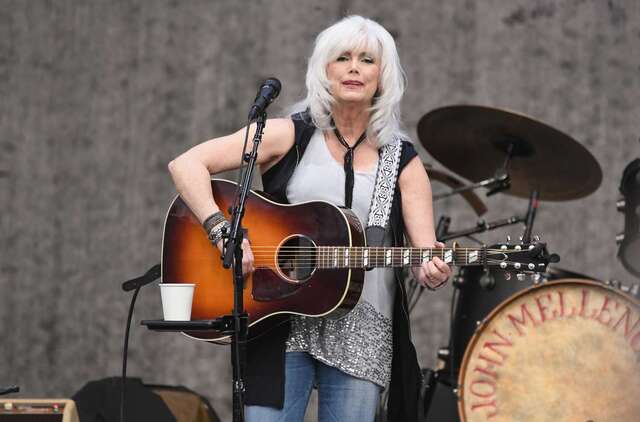
Watch Emmylou Harris and Mark Knopfler’s soulful performance of “If This Is Goodbye,” where their voices and guitar mastery blend to create an unforgettable musical moment.
A Life Beyond Music: Personal Triumphs and Advocacy
Emmylou Harris’s personal life has been just as dynamic and multifaceted as her music. She has been married three times and has two daughters, Mika and Meghann, who have been a source of joy and inspiration. Despite facing challenges in her relationships, Harris has remained a devoted mother and a resilient figure in the music industry.
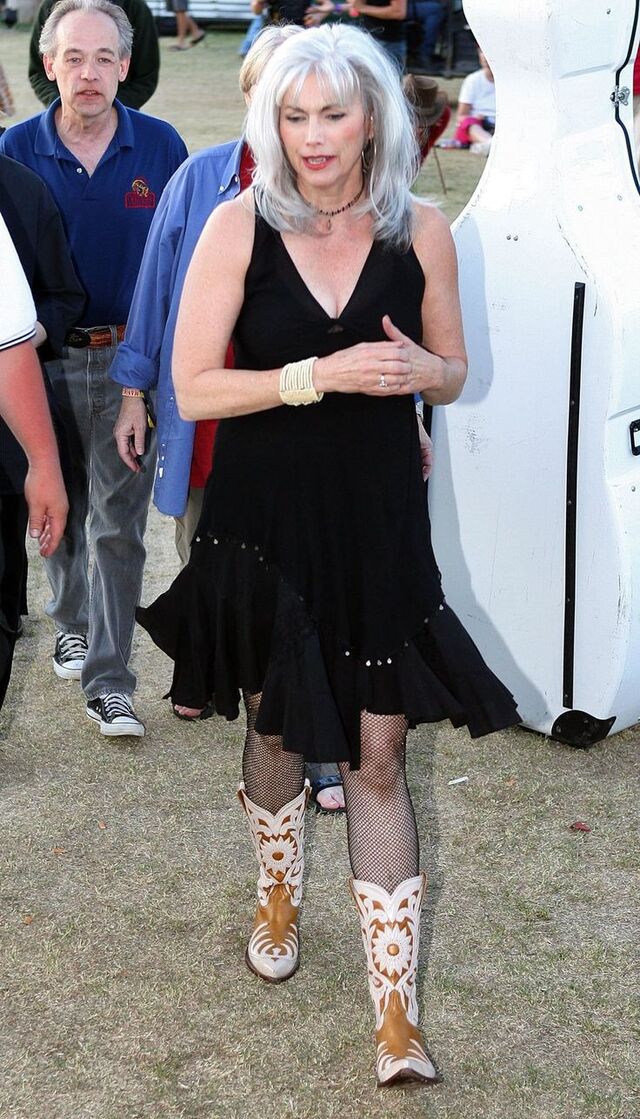
Her love for animals led her to establish Bonaparte’s Retreat, a dog rescue organization in Nashville. The organization, named after one of her own rescue dogs, reflects Harris’s compassionate nature and her commitment to making a positive impact in her community.
Xem bài viết này trên Instagram
Enduring Legacy: The Emmylou Harris of Today
Even after more than five decades in the music industry, Emmylou Harris continues to inspire audiences and artists alike. She remains active in the music world, frequently collaborating with younger musicians and performing at benefit concerts. Recent highlights include The Life & Songs of Emmylou Harris (2016), a tribute concert featuring artists like Alison Krauss and Sheryl Crow, celebrating her lasting impact on the music world.

Harris also uses her platform to support various causes, including refugee relief, animal welfare, and environmental conservation. Her ongoing tours and advocacy work reflect her commitment to making the world a better place, both through her music and her charitable efforts.
Final Thoughts: A Timeless Icon Who Transformed American Music
Emmylou Harris’s journey from a folk singer in New York City to an iconic figure in country and Americana music is nothing short of extraordinary. Her ability to blend genres, collaborate with musical legends, and stay true to her artistic vision has made her an enduring and influential figure in the music world. With a voice that transcends time and a passion for storytelling, Emmylou Harris continues to inspire generations of musicians and listeners alike, proving that her legacy is not just enduring—it’s eternal.
